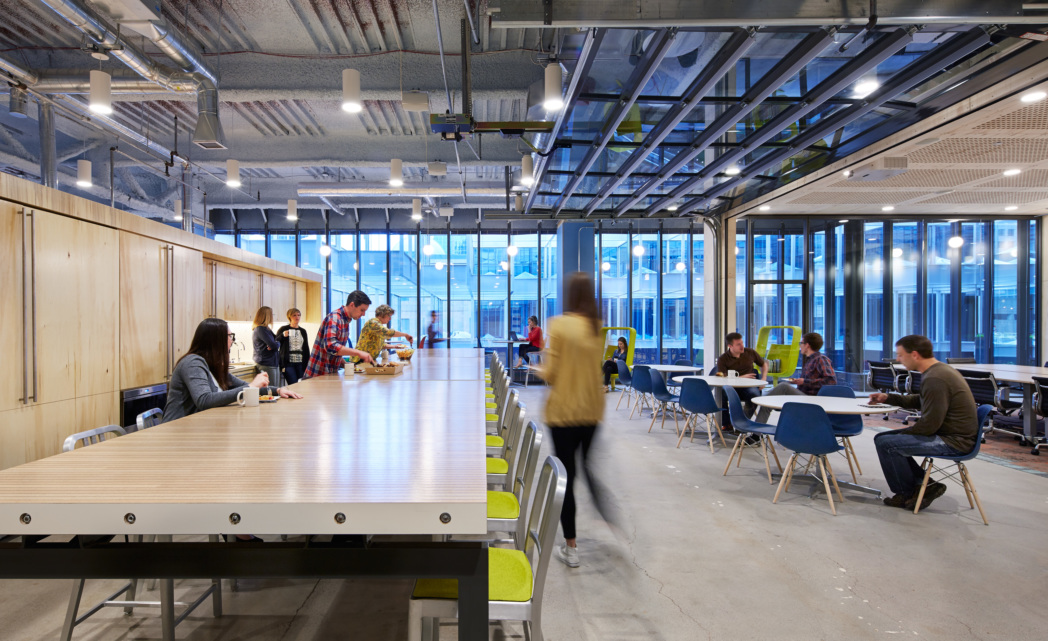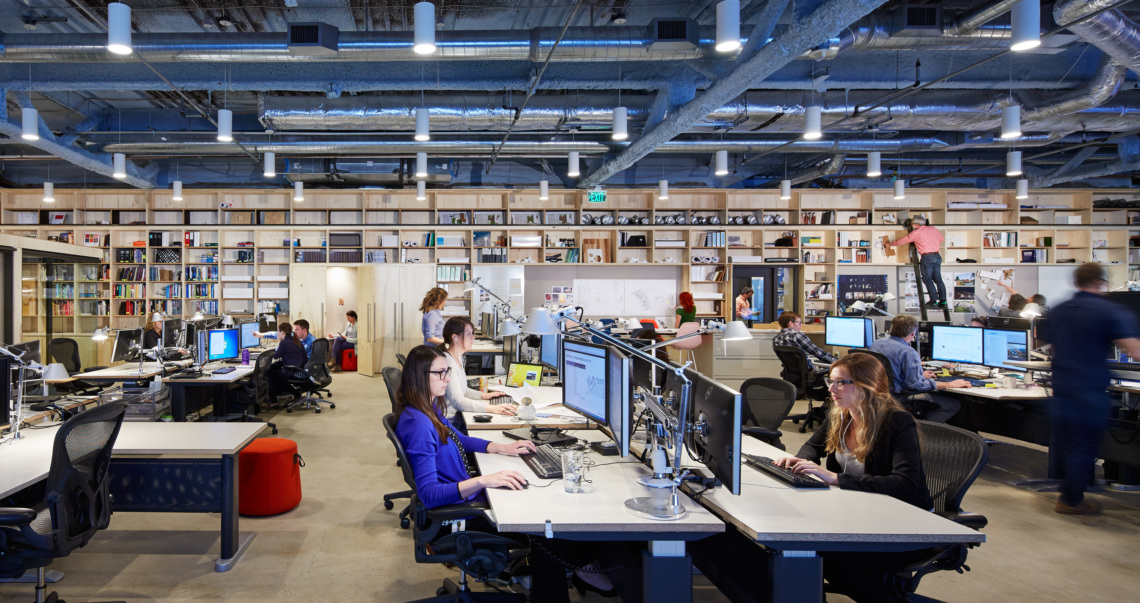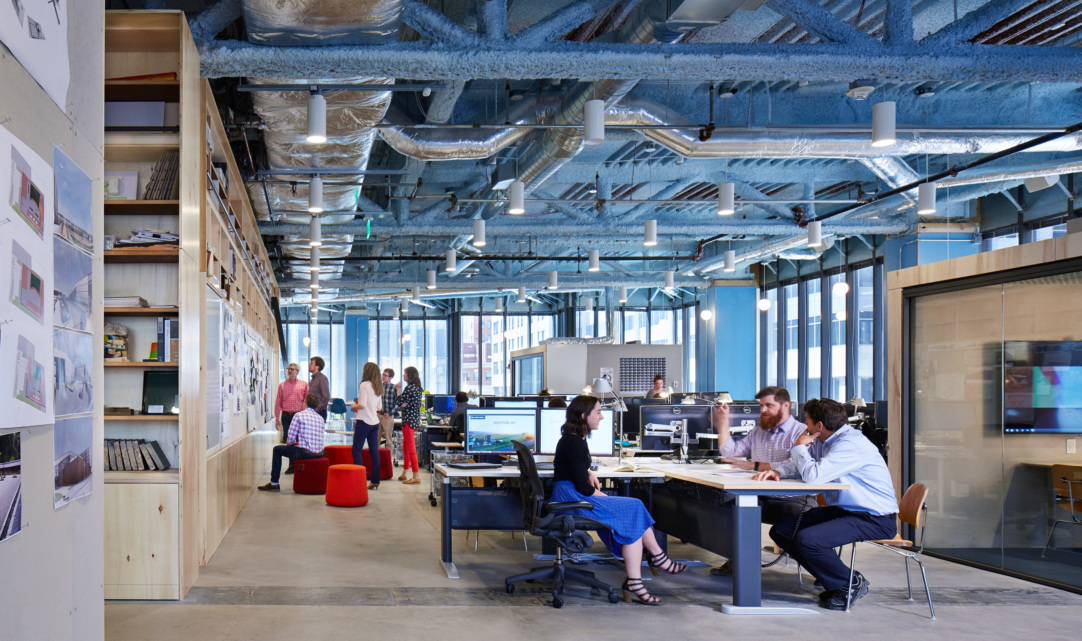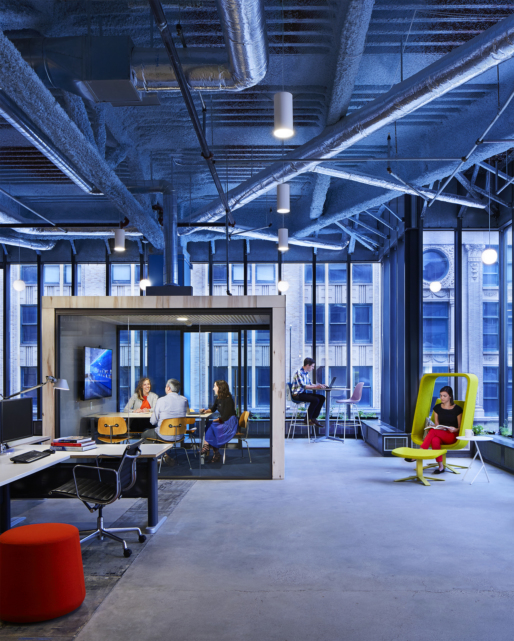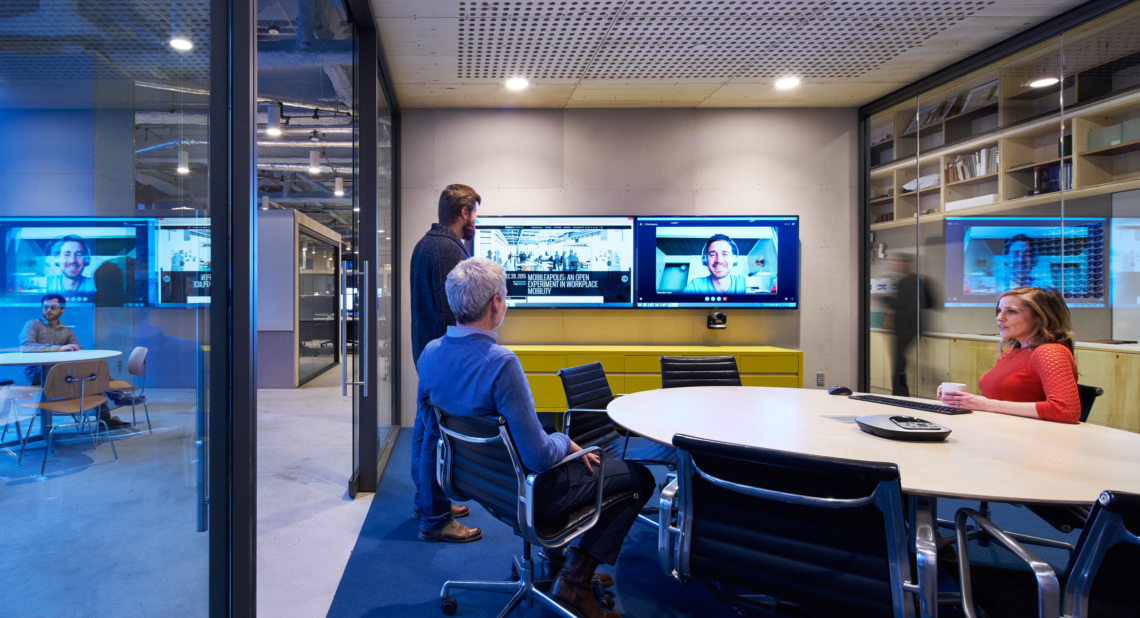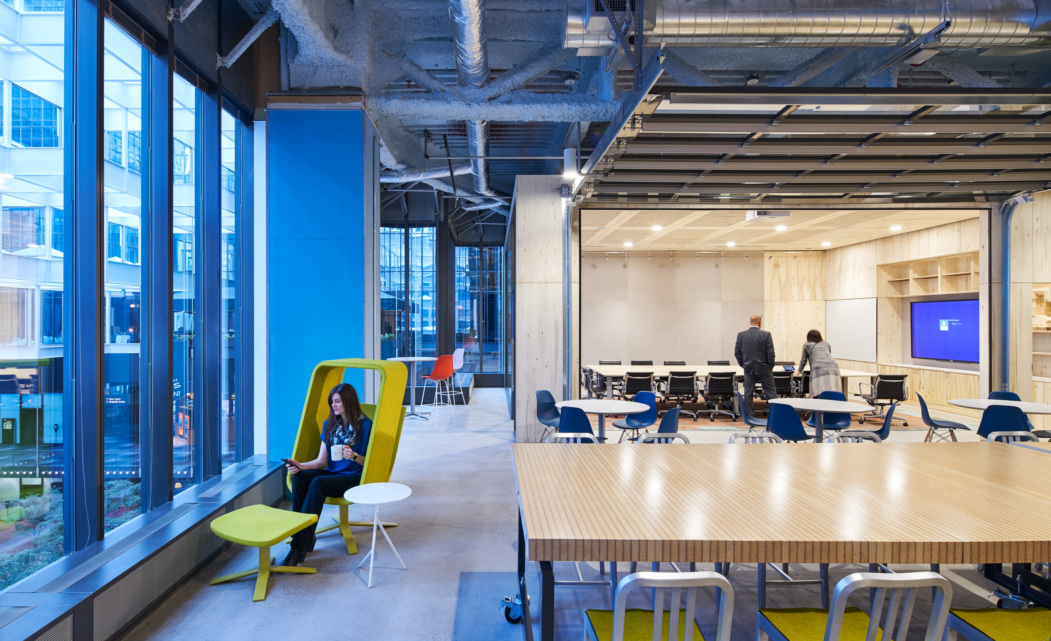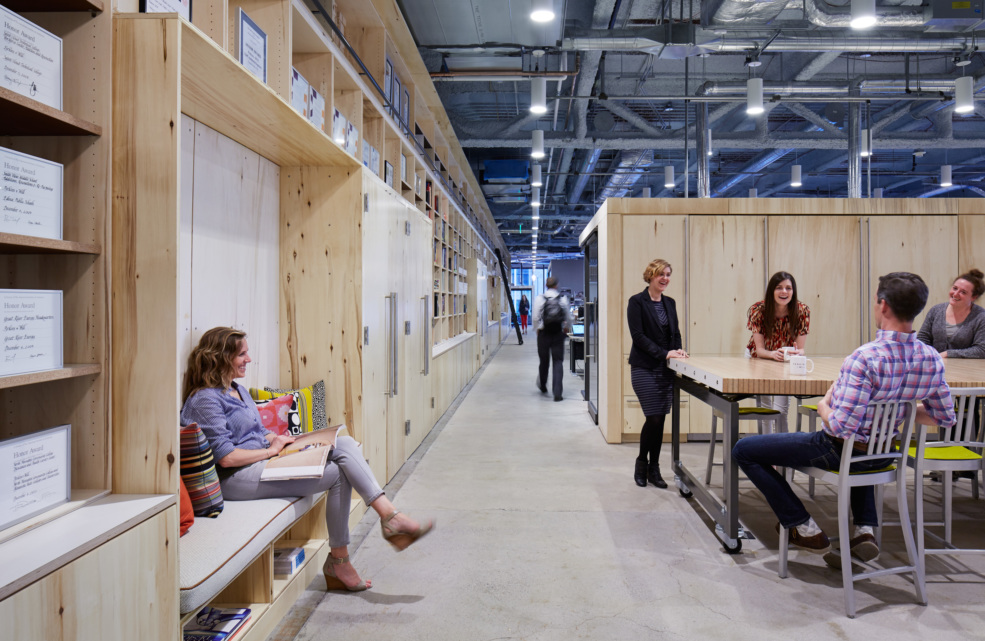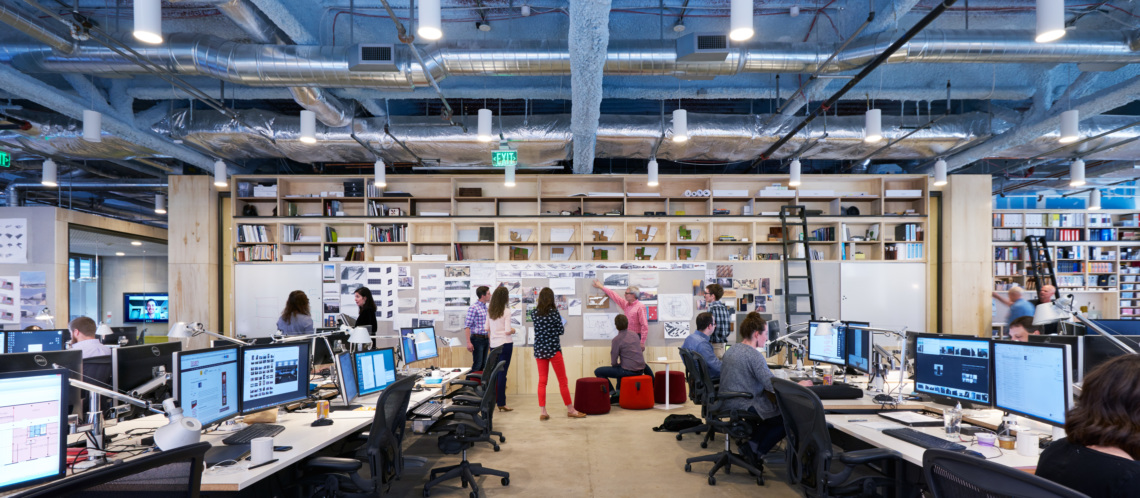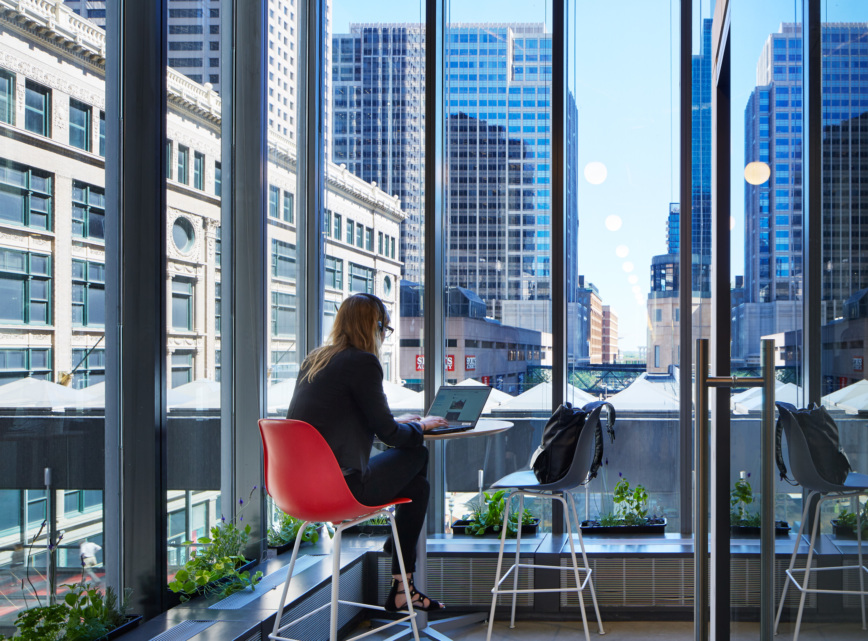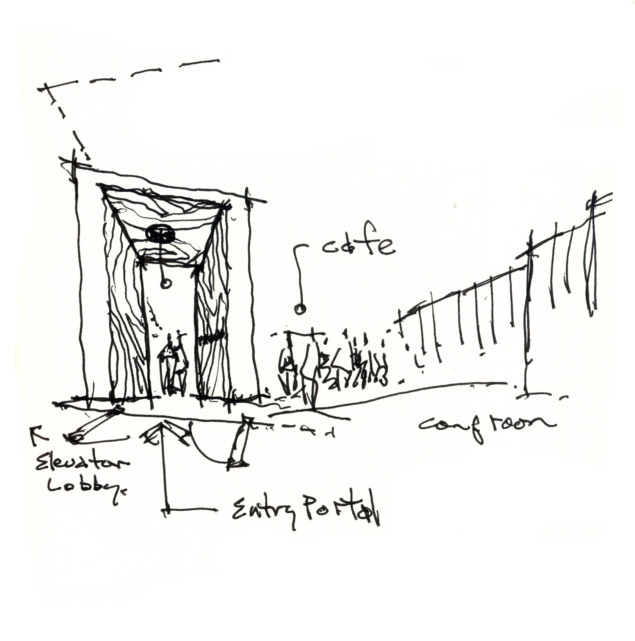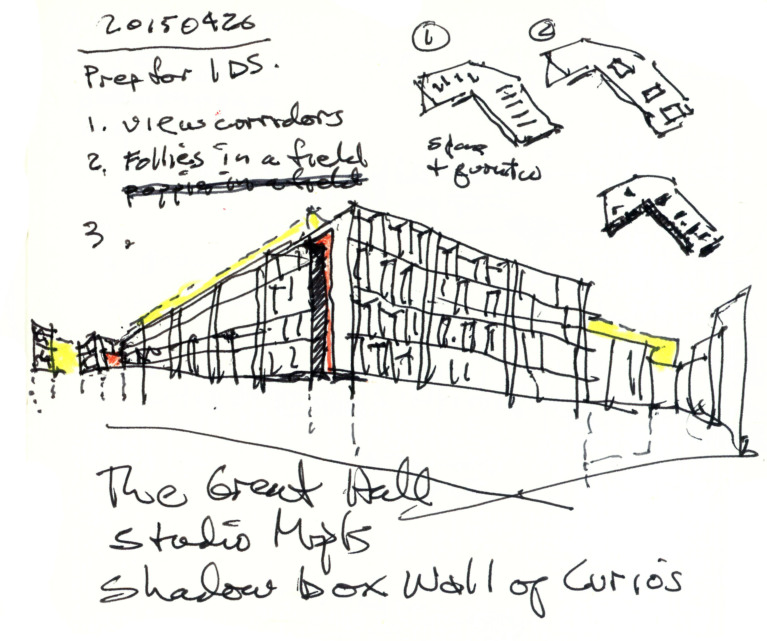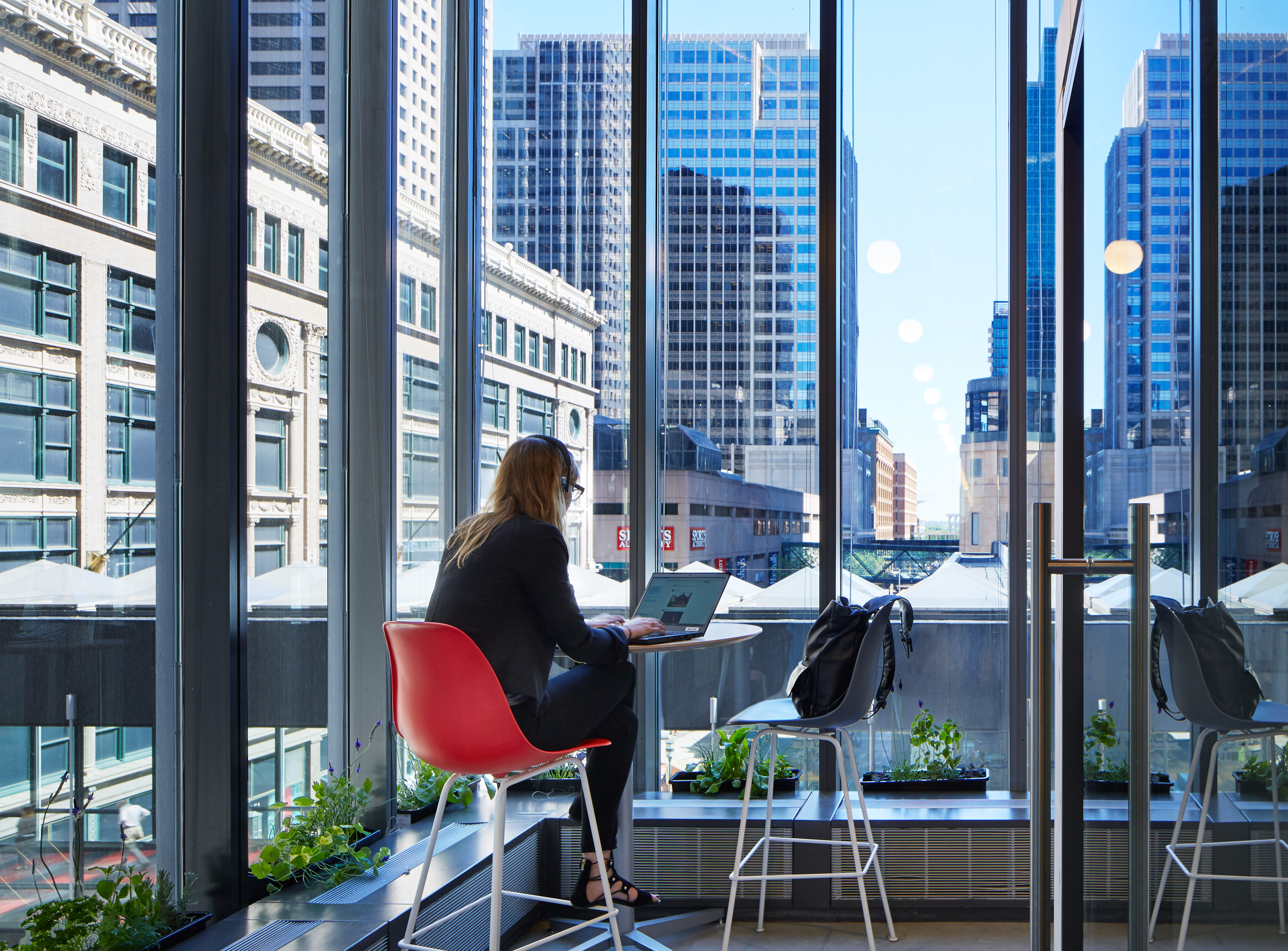
studioIDS
StudioIDS is the new self-designed home of the Minneapolis office of international architecture and design firm Perkins+Will. The studio challenges what an office is and can be. Strategically located in the heart of downtown Minneapolis, the office focuses on landscape architecture, planning, architecture, and interiors in the areas of healthcare, corporate + commercial + civic, higher education, urban design, and science + technology.
Winning Project:
ASID 2019 Outcome of Design Awards (Category: Culture)
Project Type:
Corporate Office (Workplace)
Location:
Minneapolis
Size:
9,800 SF
Case Brief By:
The Design Challenge
The new studio design needed to support Perkins+Will’s local purpose of design excellence, sustainable stewardship, and social responsibility, in addition to becoming a model mobile and agile work environment. P+W sought to challenge conventional workplace models using less to offer more opportunity for choice, creativity, and collaboration.
The Design Solution
- Participatory Design Approach that included all employees in the design process. The design team’s goal, as a living laboratory, was to measure pre- and post-occupancy to understand successes and areas for improvement.
- Free Address System enabling users to adapt, define, and self-organize their workspace as needed. With this inherent flexibility and the use of non-precious materials, the space acts as a living laboratory for workplace strategies and innovation.
- Restrained Material Palette using five core materials that are rapidly renewable and have toxin-free qualities: Aspen plywood, ceramic marker boards, homasote tackable surface, glass, and carpet.
- Salvaged Materials from the previous office were used to make adjustable shelving in the gallery wall and large harvest tabletops in the cafe, and millwork was reused in the print and model shop rooms.
- Social Cohesion was established through a partnership with a Minneapolis based furniture maker and by specifying a custom area rug from Arzu, a company that employs women and provides healthcare and education to them and their families in developing areas in Afghanistan.
Impact of Design
- Perkins+Will reduced their square footage in half from 391 s.f./person to 130 s.f./person.
- Employees reported a 40 percent increase in their ability to concentrate and a 43 percent increase in their ability to collaborate.
- Sense of community increased by 61 percent in the new space and the sense of energy/buzz increased by 62 percent.
- The project reused 16 percent of construction materials and 68 percent of furniture ($100,000 savings).
- Fifty-five percent of materials were manufactured within 500 miles and 97 percent of new wood used was FSC certified.
- The project had a lighting power reduction of 57 percent over the LEED code baseline.
- With the use of low-flow fixtures, the project had a 77 percent reduction of water use.
PROCESS
Timeline
- Design: March-July 2015
- Construction/Approval: September 2015–February 2016
- Project Completion: February 2016
Project Team
- Design & Research: Perkins+Will
- MEP Engineer: Dunham Associates
- General Contractor: Gardner Builders


